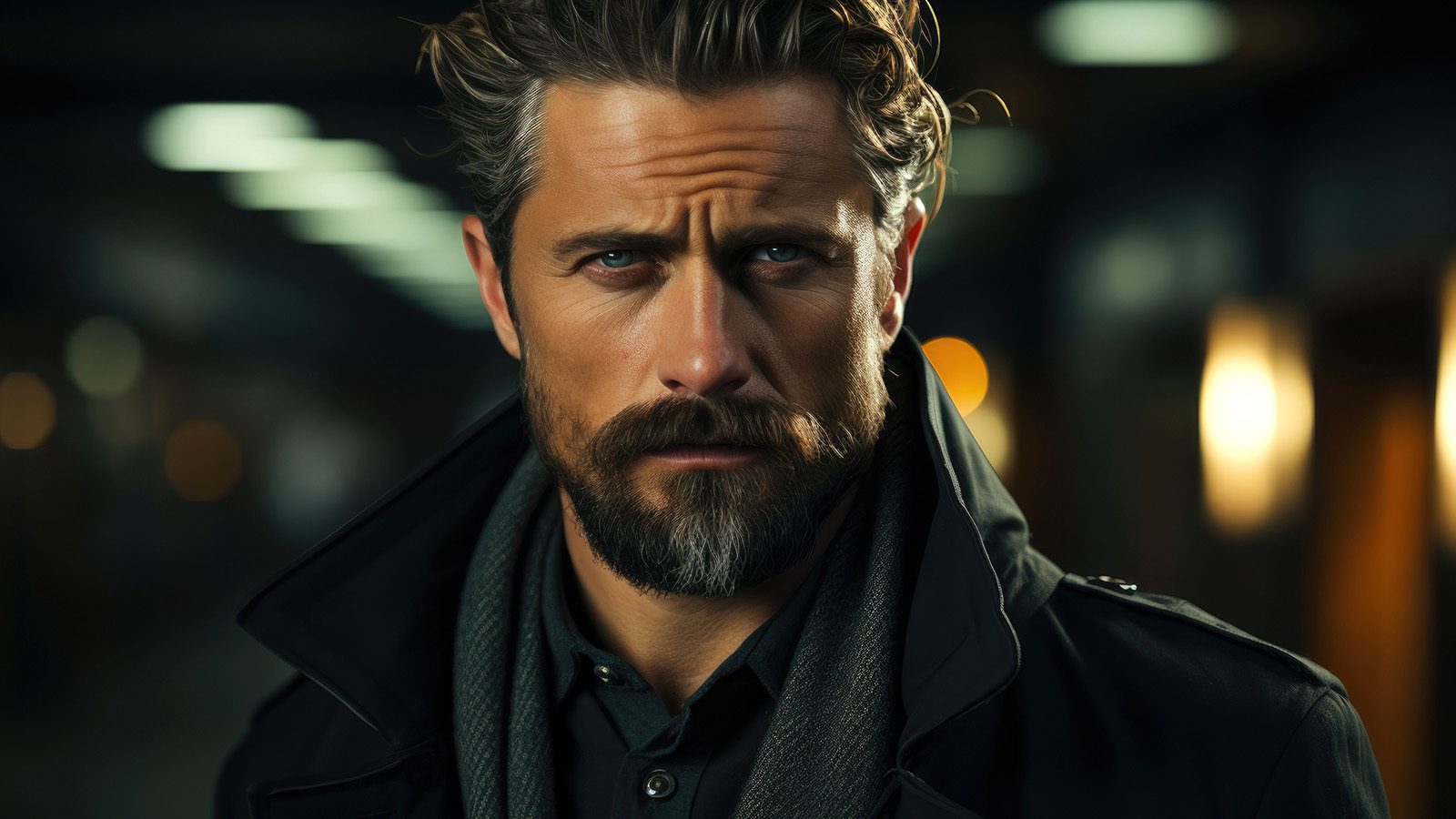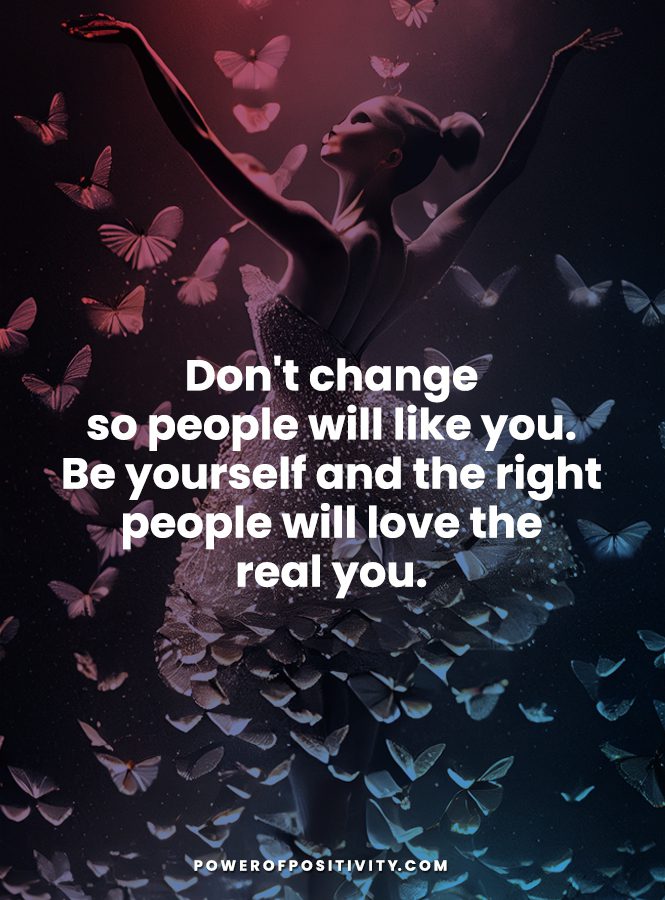Here’s why so many people love a man with a beard.
Have you ever wondered why men with beards often catch your eye? Or have you considered why bearded characters in movies often play the role of the wise, rugged hero? There’s more to this fascination than just a fashion trend or a personal preference for facial hair. The allure of bearded men has deep roots in science and culture. It’s also in our evolutionary history.
Personal grooming and appearance play a role in social interactions. Therefore, the presence or absence of a beard can say a lot about a man. Beards have made a remarkable comeback from the boardrooms of Fortune 500s to the cozy coffee shops in our neighborhoods. Indeed, they are now symbols of style, maturity, and even wisdom.
But why do beards have such a powerful impact on how we perceive men? Is it merely a cultural phenomenon, or is there something more profound at play? This article looks into the fascinating science behind the attractiveness of men with facial hair. It also explores contemporary trends and the evolutionary and psychological factors contributing to this phenomenon.
As we unravel the mystery behind the appeal of bearded men, we’ll discover how a mix of evolutionary biology, social perceptions, and cultural trends converge to shape our preferences. Whether you’re a fan of the full beard or prefer a more clean-shaven look, understanding the science behind this allure will offer a new perspective. It will certainly explain how we perceive attractiveness and masculinity today.
So, let’s embark on this intriguing journey to uncover why men with beards often hold a special place in attractiveness and desirability.
The Science of Attraction and Beards
Science offers some compelling insights regarding understanding the allure of men with beards. It’s not just about the aesthetic appeal; beards carry many signals about maturity, masculinity, and even potential parenting abilities.
A groundbreaking study by Dixson and Brooks in 2013 looked into this phenomenon. Their research revealed that women often perceive men with heavy stubble as the most attractive. This preference isn’t just a fleeting trend; it’s rooted in the subtle cues that facial hair conveys. Heavy stubble represents the perfect balance, suggesting a man who is not only mature and masculine but also potentially more open and pleasant compared to those with a full beard or a clean-shaven face.
The same study took this analysis further by examining the perceptions of men with full beards. Interestingly, these men were rated highly regarding their perceived parenting abilities. This finding aligns with the evolutionary perspective, where traits that suggest a potential for good parenting are seen as attractive. A full beard may signal not just sexual maturity and masculinity. It also conveys a sense of stability and capability in long-term relationships.
Beards do more than add to physical appearance; they amplify characteristics highly valued in long-term partnerships. The presence of a beard accentuates characteristics like maturity, ambition, and even reliability. A beard can symbolize a man’s willingness to invest time and effort into something. For some, that can be an attractive trait in a partner.
Moreover, beards may also play a role in amplifying a man’s perceived dominance, which, from an evolutionary standpoint, could be interpreted as an ability to protect and provide. That doesn’t necessarily mean aggression but rather an assertive presence that can reassure a partner.
The science of attraction goes beyond mere physical appearance. It’s deeply intertwined with our evolutionary history and the psychological signals we unconsciously interpret. Facial hair, in this context, is more than just a fashion statement. Rather, they are a complex symbol of various desirable traits that have evolved over centuries to indicate a man’s suitability as a partner.
An Evolutionary Perspective on Facial Hair
The allure of beards can be better understood through evolutionary biology. In the grand scheme of human evolution, certain traits have become symbols of sexual maturity and fertility, aiding in mate selection. These traits, known as secondary sexual characteristics, emerge during puberty and play a crucial role in attracting potential partners.
Beards are a prime example of such characteristics in men. The growth of facial hair during puberty is not just a rite of passage into manhood; it’s a visible cue to others, signaling that the individual has reached sexual maturity. From an evolutionary perspective, traits that signal maturity are important because they are associated with a person’s ability to reproduce and the likelihood of producing healthy offspring.
Furthermore, facial hair also symbolizes fertility and health. In the past, when survival often depended on physical strength and resilience, a beard indicated a man’s robust health and, thus, his suitability as a mate. One’s ability to grow a full and thick beard is a sign of good genetics, suggesting that the individual is a favorable choice for passing on genes to the next generation.
It’s not just about reproduction, though. The evolutionary role of beards extends to social dominance and status. In many societies throughout history, beards have been associated with wisdom, leadership, and respect. A man with a beard might have been perceived as more dominant, experienced, and knowledgeable, which would benefit survival and social hierarchy.
The evolutionary perspective offers a fascinating glimpse into why beards are attractive. They are not merely a fashion statement but a complex mix of signals communicating maturity, health, fertility, and social status. These attributes, deeply ingrained in our evolutionary history, influence our perceptions and preferences in the modern world.
Cultural and Social Influences
While the evolutionary perspective offers a biological explanation for the attractiveness of facial hair, cultural and social influences play an equally significant role in shaping our perceptions. Throughout history and across various cultures, the symbolism attached to beards has fluctuated dramatically, often reflecting the time’s social, political, and fashion trends.
In some ancient civilizations, beards were highly esteemed. For instance, a full beard was a sign of wisdom and dignity in ancient Greece. Philosophers and scholars often sported facial hair. Meanwhile, in ancient Egypt, beards were typically worn by the gods. Therefore, pharaohs wore false beards to signify their divine status. This diversity in cultural practices shows how the beard’s symbolism can vary greatly depending on societal values and norms.
Fast forward to more recent times, and we see a dynamic shift in the perception of men and facial hair. In the 19th century, beards were commonly signified masculinity and virility. However, as we entered the 20th century, particularly in the Western world, the clean-shaven look became the hallmark of modernity and professionalism, influenced by both world wars and the rise of disposable razors.
The latter part of the 20th century and the early 21st century have seen a resurgence of beards, paralleling a shift in societal attitudes towards masculinity and self-expression. Beards today are a frequent sign of individuality, with the “hipster” culture popularizing a range of beard styles. This trend reflects a wider societal shift towards more diverse and inclusive notions of masculinity and personal style.
Moreover, media and popular culture continue to shape our perceptions of facial hair. From rugged movie heroes to bearded athletes and celebrities, the media has played a pivotal role in redefining what is considered attractive and fashionable.
However, it’s important to recognize that these perceptions are not universal. Some cultures still connect beards with religious or traditional significance; in others, they view them as unconventional or rebellious.
The cultural and social influences on our perceptions of beards are as diverse and complex as the styles themselves. Beards have continually evolved from ancient symbols of divinity to modern expressions of individuality. Still, they reflect the changing tides of societal values and trends. As such, the beard remains a feature of personal grooming and a fascinating barometer of cultural and social dynamics.
The Beard and Professional Perception
The perception of beards extends beyond social settings and personal relationships into the professional realm. A study by Sarah Mittal from St. Edward’s University sheds light on how beards can influence perceptions in the business world, particularly in sales and service roles.
Mittal’s research, which involved a series of studies. Overall, it found that people viewed sales personnel with beards as having greater expertise and trustworthiness. This perception directly impacted the likelihood of sales and satisfaction with the service provided. The study meticulously controlled for other factors like the salesperson’s race, ethnicity, attractiveness, and likability, ensuring that the beard was the variable under scrutiny.
What does this mean in a professional context? In the competitive landscape of sales and service, where first impressions and perceived credibility are crucial, a beard can be a subtle yet powerful tool. Facial hair can engender confidence in the individual’s expertise, possibly linking to those evolutionary associations of maturity and wisdom.
Furthermore, the perception of trustworthiness is key in any customer interaction. Trust is the cornerstone of customer relationships and business success. Mittal’s study suggests that beards might signal a certain level of sincerity and reliability, which customers often look for in service providers.
It’s interesting to note that this perception transcends various industries and contexts. Bearded sales and service personnel were consistently rated higher and received higher marks than those without.
However, it’s important to acknowledge that cultural norms and individual biases can influence these perceptions. What some perceive as a sign of expertise and trustworthiness in one culture or context may not hold the same meaning in another. Nonetheless, Mittal’s study offers a fascinating glimpse into how simple facial hair can significantly impact professional perceptions and interactions.
In a professional context, the beard is not just a style choice. Rather, it is a non-verbal cue that can subtly influence customer perceptions and interactions. As with all aspects of personal appearance, the key is understanding how these choices align with the professional image one wishes to project and the cultural context in which one operates.
Beards: Care and Grooming the Facial Hair
While the presence of a beard can enhance attractiveness and convey certain desirable qualities, the way a man grooms his beard plays a significant role in these perceptions. Proper beard care and grooming are essential not just for personal hygiene but also for maintaining an appearance that is both attractive and professional.
A well-groomed beard can enhance a man’s features, creating a polished and masculine look. It involves regular trimming to maintain a shape that complements the face and washing and conditioning to keep the beard hairs soft and healthy. Neglecting these grooming practices can lead to a beard that looks unkempt or neglected, which might detract from a man’s overall appearance and can negatively impact perceptions of professionalism and cleanliness.
Moreover, beard grooming is more than just a cosmetic concern. It’s a form of self-care that can impact a man’s well-being and confidence. Well-maintained facial hair can make a man feel more put-together and in control. Indeed, those qualities are invaluable in both personal and professional realms.
In the professional context, a neat beard can convey a sense of meticulousness and attention to detail. It suggests that the individual takes pride in their appearance and, by extension, their professional responsibilities. It can be particularly important in roles where personal interaction and presentation are key job elements.
Conversely, an unkempt beard might convey a lack of concern for personal grooming. That can inadvertently reflect on one’s professional image. In settings where first impressions are crucial, such as in client-facing roles or public speaking engagements, the state of one’s beard can either contribute to a positive image or detract from it.
Beard care and grooming are about more than aesthetics. Instead, they are an integral part of personal presentation. Further, they reflect how individuals perceive attractiveness and professionalism. A well-cared-for beard can be a significant asset, enhancing a man’s appearance. It can also positively add to their professional and personal identity.
Final Thoughts on Why Men With Beards Are Highly Attractive
The allure of men with beards is a complex interplay of evolutionary biology, cultural and social influences, and individual preferences. From an evolutionary standpoint, beards signify maturity, health, and potential parenting abilities, making them attractive traits in a partner. Culturally, beards have ebbed and flowed in their symbolism. They have reflected the values and norms of the times, from ancient signs of divinity and wisdom to modern markers of individuality and style.
Ultimately, the choice to grow a beard and how to style it is personal. Men decided after considering many factors, including personal style, cultural background, and professional requirements. What remains constant is the intriguing role that beards play in human social dynamics. It is a role that combines deep evolutionary roots with ever-changing cultural and social norms. Whether you embrace the beard or prefer a clean-shaven look, understanding the fascinating science and history behind facial hair can offer a new perspective on this unique aspect of human expression.

















 Community
Community

